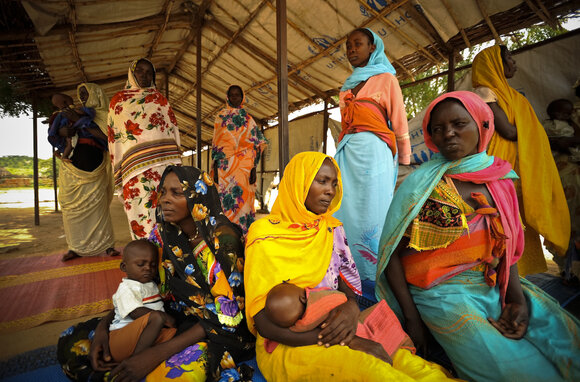
This page contains documents and other resources related to children's care in Africa. Browse resources by region, country, or category. Resources related particularly to North Africa can also be found on the Middle East and North Africa page.
This page contains documents and other resources related to children's care in Africa. Browse resources by region, country, or category. Resources related particularly to North Africa can also be found on the Middle East and North Africa page.
Displaying 11 - 20 of 2401
Lumos is seeking to hire a Country Director to lead the Kenya country office whilst ensuring that the management and quality of the programme remains at a high standard.
This is a program evaluation of Agape Children's Ministry's Family Strengthening Programme in western Kenya that works to reunite children from the streets with their families.
This is a corporal punishment country report for Guinea-Bissau. While prohibition of corporal punishment is still to be achieved in the home and day care, the Child Protection Code 2021 of Guinea-Bissau prohibits corporal punishment in alternative care settings, schools and in penal institutions.
ACERWC released a study on the structures and functions of NHRIs on child protection to assess how child rights issues are incorporated in their mandates. The study identifies challenges and proposes areas to strengthen collaboration.
This chapter is part of the "Research Handbook on Migration, Gender, and COVID-19" and explores the gender and youth dimensions of return from GCC States to the East Africa subregion, focusing on three countries: Uganda, Kenya and Ethiopia.
Many young orphans in Zimbabwe grow up in residential care facilities, but according to governmental policies and literature in this field, these children should be transitioned to extended families to ensure optimal development. This article provides empirically derived insights to the inner experiences of the transition processes of five young orphans and their extended family members, two residential care administrators, and one social worker.
This longitudinal study uses a causal effect model to examine, through decomposition, the relationship between care environment and HIV risk factors in orphaned and separated adolescents and youths (OSAY) in Uasin Gishu County, Kenya; considering resilience, social, peer, or family support, volunteering, or having one’s material needs met as potential mediators. The authors analysed survey responses from 1105 OSAY age 10–26 living in Charitable Children’s Institutions (CCI) (orphanages) and family-based care settings (FBS).
This is the monthly update of the Eastern and Southern Africa Regional Learning Platform published in January 2024.
This report examines the evolution of social service workforce strengthening in the light of the three core pillars of the Social Service Workforce Strengthening Framework: planning, developing and supporting. It identifies significant progress and accomplishments that have been made to strengthen the social service workforce at the global level as well as in three specific countries: Romania, Uganda and Viet Nam.
Since care reform is a long and complex process, requiring collaboration between many diverse actors, with different change pathways in diverse contexts, the Changing the Way We Care initiative set out to learn from different demonstration countries, build national and regional knowledge, and reinforce global momentum for family care. This learning brief describes some of that journey.
This brief shares how the initiative used CLA related to the social service workforce strengthening and case management.